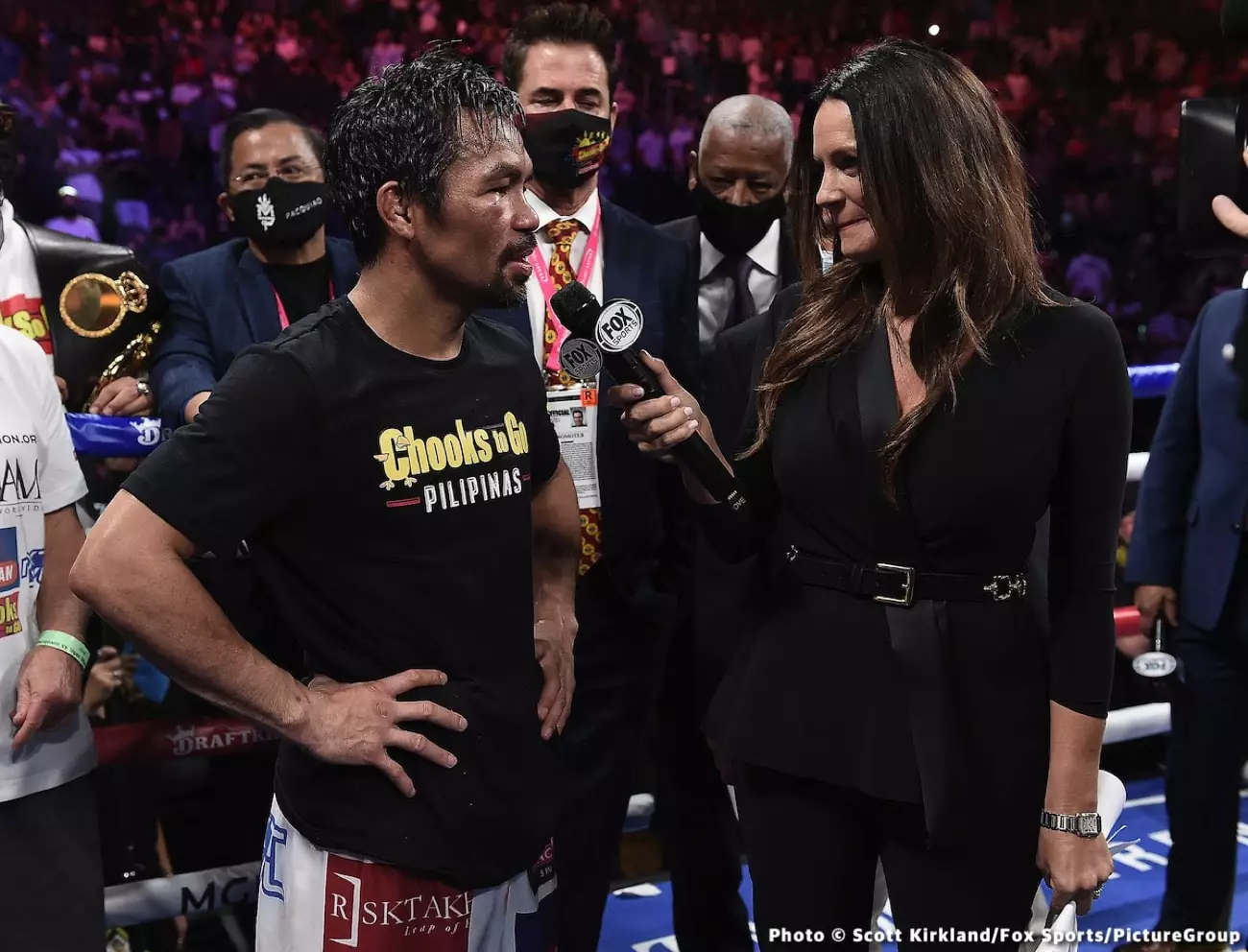Fifteen years ago, boxing fans gathered in droves at the sprawling Cowboys Stadium in Arlington, Texas, fueling high expectations for a bout that, at least on paper, promised excitement. With Manny Pacquiao, a rising superstar, entering the ring as the reigning WBO welterweight champion, expectations were sky-high. His opponent, Joshua Clottey, although not as acclaimed, was known for his toughness and credible skills as a fighter. The stage was set for what should have been a memorable face-off. Instead, it became a night steeped in controversy and disappointment.
Emerging in March 2010, Pacquiao had solidified his status as one of boxing’s elite, maintaining an impressive record of 50 wins and just three losses. Clottey, on the other hand, held a respectable record of 35-3, yet the world was increasingly clamoring for the long-awaited showdown between Pacquiao and Floyd Mayweather—a match that would remain elusive for another five torturous years. In the interim, Pacquiao was set to face Clottey in a bout dubbed “The Event,” a title that would come to be farcically ironic.
The Dull Dance of the Fighters
Anticipation turned quickly to bewilderment as the fight unfolded. Pacquiao’s explosive style, usually synonymous with action-packed exchanges, seemingly lacked a worthy counterpart that night. Clottey, often recognized for his durable chin and relentless spirit, ultimately delivered a lackluster performance, one in which he hardly threw any significant punches. The fight was aptly described as a dominant showcase for Pacquiao, with judges awarding him a staggering shutout victory with scores of 120-108 and 119-109 across the board.
Audience members, initially filled with hope and excitement, began to sense an odd dissonance in Clottey’s approach. Why would a seasoned warrior enter the ring without any apparent will to fight? As the rounds progressed, murmurs began circulating amongst fans, suggesting the fight might have been rigged. Yet, the logical reasoning behind such a conspiracy remained elusive.
Clottey’s Confession: A Fighter’s Dilemma
Years later, revelations would cast a shadow over that fateful night. Clottey, in a candid interview, shared bombshell insights into the circumstances that led to his lack of aggression. He claimed that he was effectively “robbed” by his managerial agreement, which greatly reduced his earnings from a fight he should have approached with full dedication. According to Clottey, his manager at the time had negotiated a meager $3 share from each $100 pay-per-view purchase, which only became lucrative after an unsustainable threshold of 300,000 buys.
This shocking revelation added complexity to the match, raising the question: How could a fighter fully commit to a battle when he perceived he would be unfairly compensated? Clottey’s admission painted a stark picture of a system marred by manipulation where a fighter’s zeal could be compromised by financial exploitation—a painful irony in a sport rife with stories of unjust management practices.
The Ripple Effects of Controversy
The repercussions of that March evening stretched far beyond the confines of the ring. Fans left their seats confused and disillusioned, and the fight increasingly became a lesson for aspiring boxers on the importance of securing equitable managerial agreements. Clottey’s subsequent inability to effectively advocate for himself revealed the significant challenges many fighters encounter amidst the glitzy façade of the boxing world.
As the years rolled on, the significance of Pacquiao vs. Clottey transformed from a mere boxing match into a cautionary tale—a reminder of how external factors could dramatically distort the purity of competition. Clottey’s lack of effort became emblematic of broader systemic issues, reminiscent of the struggles faced by countless athletes who find themselves vulnerable to the whims of untrustworthy agents and corrupt financial practices.
Lessons for Future Generations
As we reflect on that night in 2010, it serves as a stark reminder that the fight game is not simply about punches thrown and titles won. It’s deeply interconnected with personal integrity, the financial well-being of fighters, and the relationships that shape their careers. While Pacquiao’s dominance on that night further solidified his legacy, Clottey’s story invites scrutiny into the industry that allowed his talent to go to waste.
Time may continue to march on, but the lessons drawn from the controversial clash between Pacquiao and Clottey echo throughout the annals of sporting history. Fighters must advocate for their financial interests with tenacity, ensuring that their path to greatness does not descend into the shadows of exploitation.


Leave a Reply